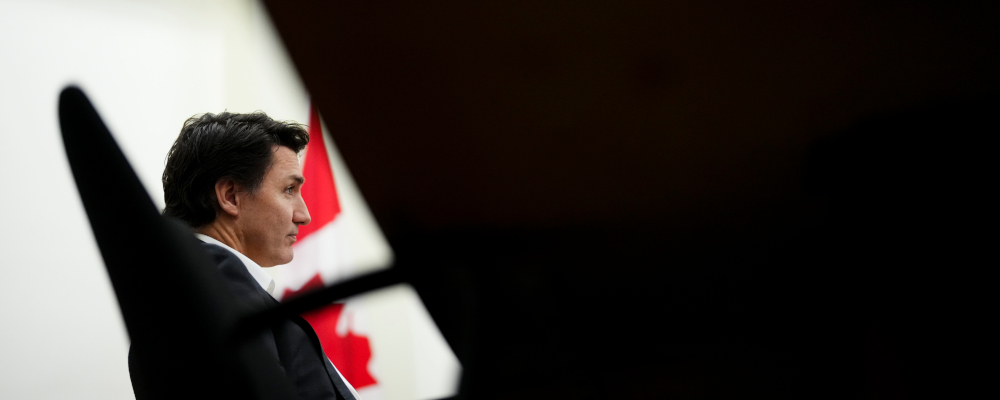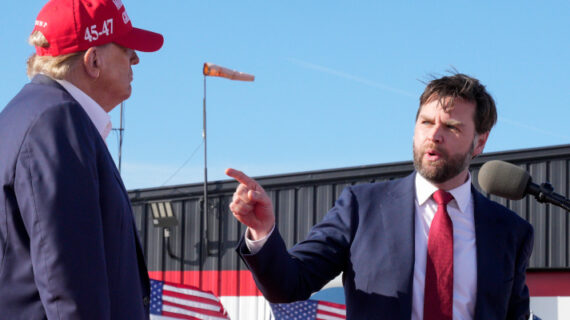One of the most popular articles that I’ve written for The Hub was published barely a week after we officially launched. In response to the Trudeau government’s 2021 budget, which set out a series of left-wing priorities including universal childcare, a $15 minimum wage, a new luxury tax, and various identity politics measures, I wrote that the government’s ambitious plan “signal[ed] the rise of a new, confident progressivism that has set its sights on the commanding heights of policy and governance.”
I also warned however that “there are no permanent intellectual victories…because a combination of new generations, new challenges and unexpected events are bound to threaten previous intellectual advances.” My basic point was that although progressivism seemed to be on the ascendancy, the history of political ideas is a dynamic one in which the prevailing intellectual winds can change abruptly.
What a difference a few years make. Today the Trudeau government is well behind the Conservatives in national polling and its political future is highly in doubt. But even more importantly the progressive intellectual momentum that has undergirded its policy agenda is now itself facing a serious ideological threat. Its biggest challenge isn’t a resurgent conservatism per se. It’s progressivism’s own record that’s the problem.
On a number of big-picture issues—economic stagnation, global isolation, national attenuation, and urban disorder—the government’s ideological agenda has failed according to its own terms. The promise of progressivism has run into the powerful headwinds of reality.
The Trudeau government’s overemphasis on equity isn’t a new path to economic growth. Its feminist foreign policy isn’t a substitute for hard power. Disproportionately targeting the country’s richest province isn’t a source of national unity. Decriminalizing drugs and generally adopting a sociological view of criminality isn’t how we secure safe communities. We’ve witnessed the full unfolding of progressive ideas into public policy and Canadians are generally dissatisfied.
The disappointment was on display this past November in Montreal where leading progressive thinkers and politicians from around the world convened to assess the state of their global political movement. The conference’s message and mood were understandably less assured than in previous years.
The Global Progress Action Summit, which drew high-profile figures such as current British Labour Party leader Keir Starmer and his predecessor Tony Blair, former Obama Administration national security adviser Ben Rhodes, former British and Canadian central banker Mark Carney, and Canadian Prime Minister Justin Trudeau, has in past years seen progressives come to Canada in search of ideas and inspiration. This time however felt different. The conference was marked by a tacit sense that the vision of a new, durable political consensus has failed to materialize. Progressive aspirations have instead been met by a powerful combination of uncompromising facts and mounting public opposition.
Canada has been at the centre of progressive politics for nearly a decade. One may even argue that it has served as a laboratory for the experimentation of progressive ideas in practice. Due to a combination of ideological and institutional factors, the Trudeau government has been the fullest expression of progressives’ ambitions to translate their ideas and values into a governing agenda.
Justin Trudeau was first elected prime minister in October 2015, just over a year before Donald Trump’s shocking victory over Hilary Clinton. Although it was a destabilizing time for global progressives, the newly-elected Canadian prime minister offered hope. His personal mix of charisma and pedigree, as well as his team of well-connected policy wonks, led progressives around the world to invest a lot in him. He was seen by many as the “progressive heir” to Barack Obama who publicly endorsed him in his two subsequent election campaigns.
Prime Minister Trudeau was well positioned to go far beyond President Obama’s more constrained progressive agenda. Canada is generally more left–wing than the United States, so he started with a political centre of gravity tilted in his favour. He also had a large parliamentary majority, so he faced far fewer institutional constraints to pass and implement his policy priorities. And after nearly a decade of Conservative government, Canadians wanted change and the then-43-year-old prime minister was keen to give it to them.

He and his team conceived of their mandate as about more than merely swapping out the incumbent government for a new one that would enact policy changes on the margins. They had a conscious self-image as a realignment government. They sought to challenge many of the prevailing policymaking assumptions in Ottawa, including among Trudeau’s own Liberal Party. As I’ve previously written: “[The Trudeau government] has a strong theory of the case about the role of markets and the state and the proper goals of government policy…The problem has never been that it lacks ideas.”
This set of conditions can find a historical parallel. As The Hub’s new managing editor, Harrison Lowman, reminded us this week, our current political moment has striking similarities to the early 1980s. The prime minister’s father then led a government that was animated by its own ideological ambitions. He was cool, smart, and determined to do things differently. Progressivism appeared to be on the ascendancy.
Yet its manifestly poor outcomes—including Canada’s isolation around the world, rising threats to national unity, the onset of a national malaise, and a sustained period of economic stagnation—had the opposite effect. They eventually ushered in a conservative policy revolution led by Progressive Conservative Prime Minister Brian Mulroney which included free trade, privatization, and comprehensive tax reform.
As we enter 2024, one gets the sense that we may be on the cusp of another rightward shift. That the Trudeau government’s failings as a standard bearer for progressivism will itself produce an ideological chain reaction. If so, it could represent a huge opportunity for conservative statecraft. The onus is on the Conservatives therefore to prepare as Mulroney and his team did for it.




